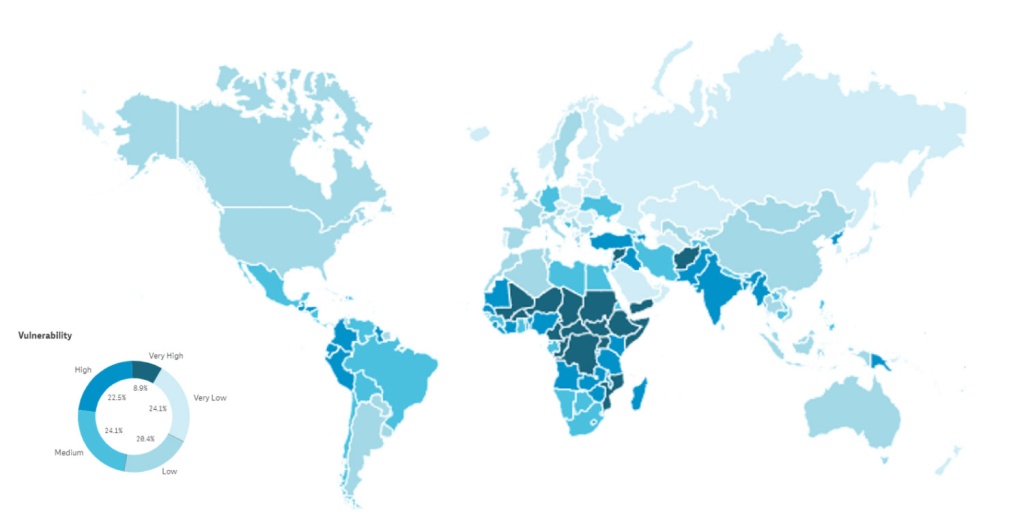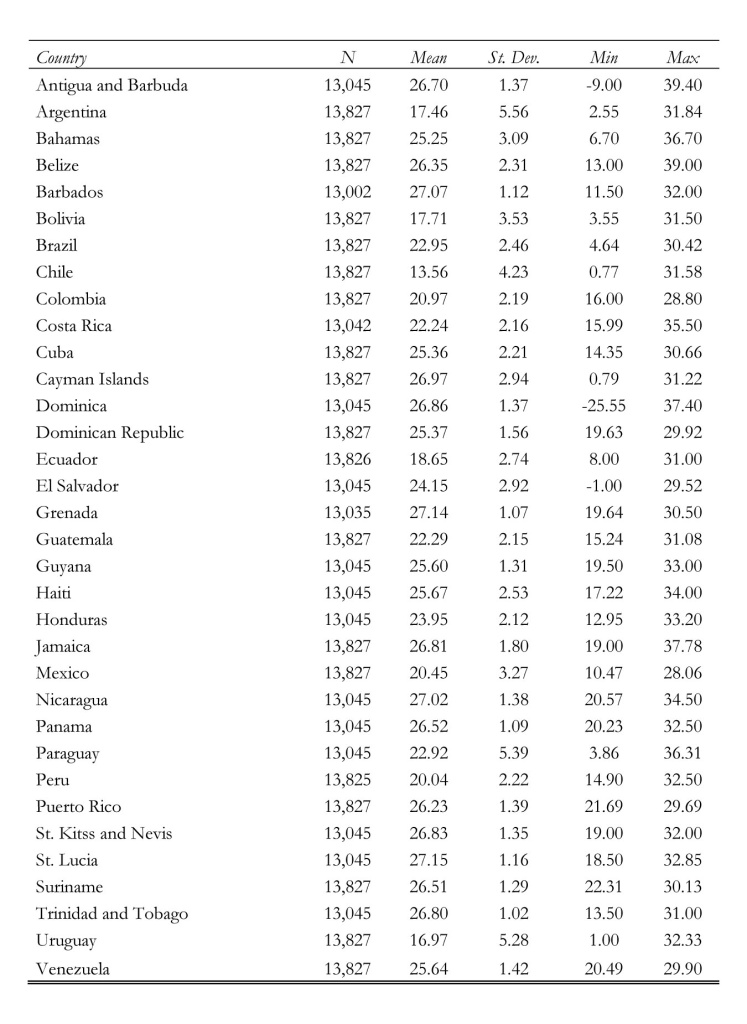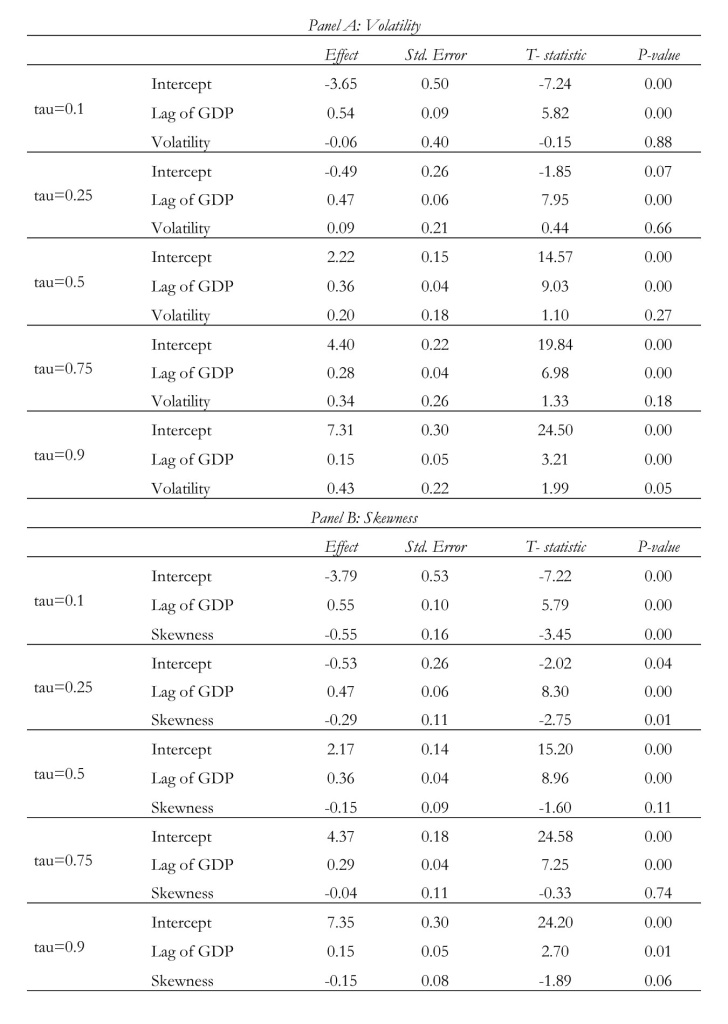Authors:
Carlos Giraldo, Chief economist at Latin American Reserve Fund – FLAR – cgiraldo@flar.net
Iader Giraldo, Principal economic researcher at Latin American Reserve Fund – FLAR – igiraldo@flar.net
Jose E. Gomez-Gonzalez, Department of Finance, Information Systems, and Economics, City University of New York – Lehman College, Bronx, NY, USA. / Visiting Professor, Escuela Internacional de Ciencias Económicas y Administrativas, Universidad de La Sabana, Chía, Colombia – jose.gomezgonzalez@lehman.cuny.edu
Jorge M. Uribe, Serra Húnter Fellow, School of Economics, Universitat de Barcelon, Barcelona, Spain – jorge.uribe@ub.edu
In light of increasing climate uncertainty, it is crucial to understand its economic impacts. This blog post, based on our recent research, explores the asymmetric effects of climate-related shocks on economic growth in Latin America and the Caribbean. Our research reveals that while traditional studies focus on average temperature changes, the skewness in climate variability plays a critical role in influencing economic outcomes during periods of negative growth.
Climate change is the most significant and complex externality, surpassing all other environmental and economic challenges in scale and uncertainty. Heat-trapping gas emissions come from a broad range of sources, as almost every production unit and household contribute. The effects are just as widespread, impacting agriculture, energy consumption, health, and numerous natural systems, thereby affecting all areas of life.
The causes and consequences of climate change are diverse and multifaceted. Paradoxically, the nations with the lowest emissions, typically those with lower incomes, are the most susceptible to its adverse effects. Furthermore, it is a long-term issue, as certain greenhouse gases can remain in the atmosphere permanently.
Figure 1: Country climate change vulnerability.
Research on the economic impact of climate change burgeoned notably from the late 20th century onward. This epoch witnessed an escalating focus in scientific research delineating the potential impacts of climate change across diverse domains of human society, prominently encompassing economic frameworks. As scientific consensus consolidated around the tangible and consequential aspects of climate change, there arose a commensurate acknowledgment among economists and policymakers of the imperative to comprehensively assess and quantify its economic dimensions.
The studies on the relationship between climate and the economy can be divided into two main categories. The first category, which includes most early studies, examines the impact of climate—defined as the thirty-year average of weather—on the economy and overall welfare. The second category consists of a smaller number of studies that investigate the impact of weather, a more variable and unpredictable factor, on economic performance. This approach is motivated by the relatively slow and minimal changes in climate over the periods for which data are available.
Within this second category, most studies focus on temperature shocks and their influence on economic growth. Some of these studies model economic output growth rates as a function of temperature levels, while others examine the relationship between economic growth rates and changes in temperature. The primary focus across these studies is on mean temperature.
In climate economics, the asymmetric nature of climate shocks is well acknowledged. Natural disasters resulting from climate change are recognized as rare events with catastrophic economic consequences, inherently implying a long-tailed distribution of climate-related shocks. However, empirical studies examining the relationship between climate factors (e.g., temperature or precipitation) and economic activity have almost invariably focused on average effects. These studies typically estimate the impact of average changes in temperature (or average temperature itself ) on the growth rates of countries yielding mixed results. Average increases in temperature have been shown to either increase or decrease economic activity, as discussed in Tol (2024), who provides a recent review of this literature.
Climate shocks are not uniform. Their impacts vary significantly, making a nuanced analysis essential for policy-making. We explore the less examined aspects of climate shocks: their volatility, skewness, and kurtosis, and how these factors affect economic growth across different quantiles, especially during downturns.
Our study examines daily temperature fluctuations from 1970 to 2022 across 34 Latin American and Caribbean countries (Table 1). Employing panel quantile models with fixed effects, we measure the impact of climate uncertainty on economic growth. Our methodology not only addresses the complexity of these relationships but also provides a robust framework to assess the impact across various growth quantiles.
Table 1: Summary Statistics Daily Temperature 1970-2022
By adopting these methodological strategies, our study contributes to a clearer understanding of how climate uncertainty affects economic growth dynamics in specific regional contexts, offering insights that are robust to variations in institutional and environmental conditions across Latin American and Caribbean nations.
The results of our study reveal a significant negative impact of skewness on the lower levels of the growth distribution during periods of negative growth (Table 2). Interestingly, general volatility and kurtosis do not show a substantial impact across the levels. These findings underline the importance of considering the asymmetric nature of climate shocks as opposed to focusing solely on average temperature changes.
Our findings suggest that policymakers should consider these asymmetric effects when developing economic and environmental strategies. Incorporating climate skewness in economic models could lead to more effective risk management and resilience strategies, particularly for regions prone to negative growth phases due to climatic conditions.
Given the significant risk that climate change poses to global economies, understanding the nuanced impacts of climate shocks is essential. Our study contributes to a deeper understanding of how different dimensions of climate variability affect economic growth, offering valuable insights for shaping resilient economic policies.
Table 2. Results Panel Quantile with Fixed Effects
References
Tol, R. S. (2024). A meta-analysis of the total economic impact of climate change. Energy Policy, 185, 113922.







